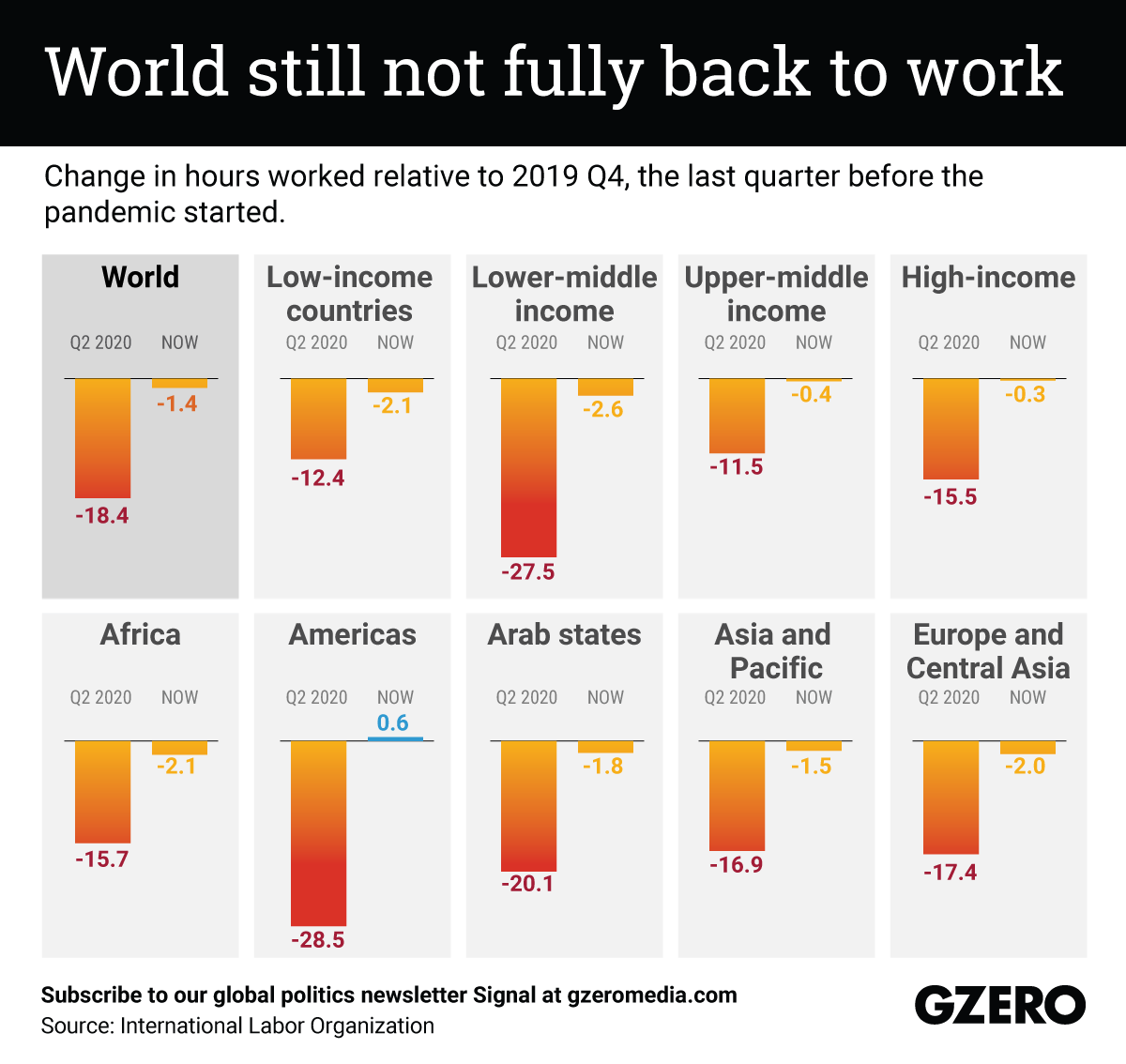November 16, 2022
It’s been almost three years since the COVID pandemic swung a wrecking ball through our societies, our economies, and our workplaces. But even now, with the most acute phase of the crisis behind us, many aspects of life still aren’t back to what they were in the B.C. (Before Coronavirus) era. One great example is the hours worked in our economies. When the pandemic struck, lockdowns and other restrictions caused the number of hours worked on a quarterly basis around the world to plunge by nearly 20% compared to the final quarter of 2019, the baseline for “last moments of pre-pandemic normalcy.” But since then, the world as a whole still hasn’t gotten back to pre-pandemic levels of hours worked — we’re still almost 1.5% below them. Lower-income countries are struggling more than rich ones to get back to where they were, and there is only one region of the world that shows more hours worked now than before the pandemic — can you guess which one it is?
More For You
Most Popular
- YouTube
In this Quick Take, Ian Bremmer reacts to President Trump’s State of the Union address, calling it “a rehashing of the greatest hits” with little new policy direction.
Small business hiring surged 7% above the 2024 average in December, led by a surprise rally in retail. But with uncertainty still historically high and mounting concerns over tariffs, can this momentum survive 2026? Explore the data behind the resilience of the US small business sector. Get the latest economic insights from Bank of America Institute.
© 2025 GZERO Media. All Rights Reserved | A Eurasia Group media company.
